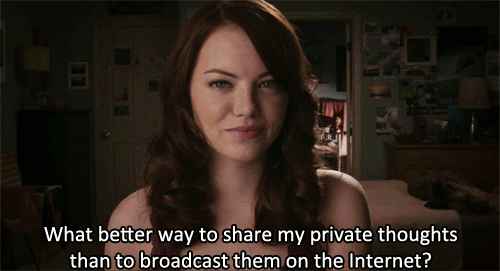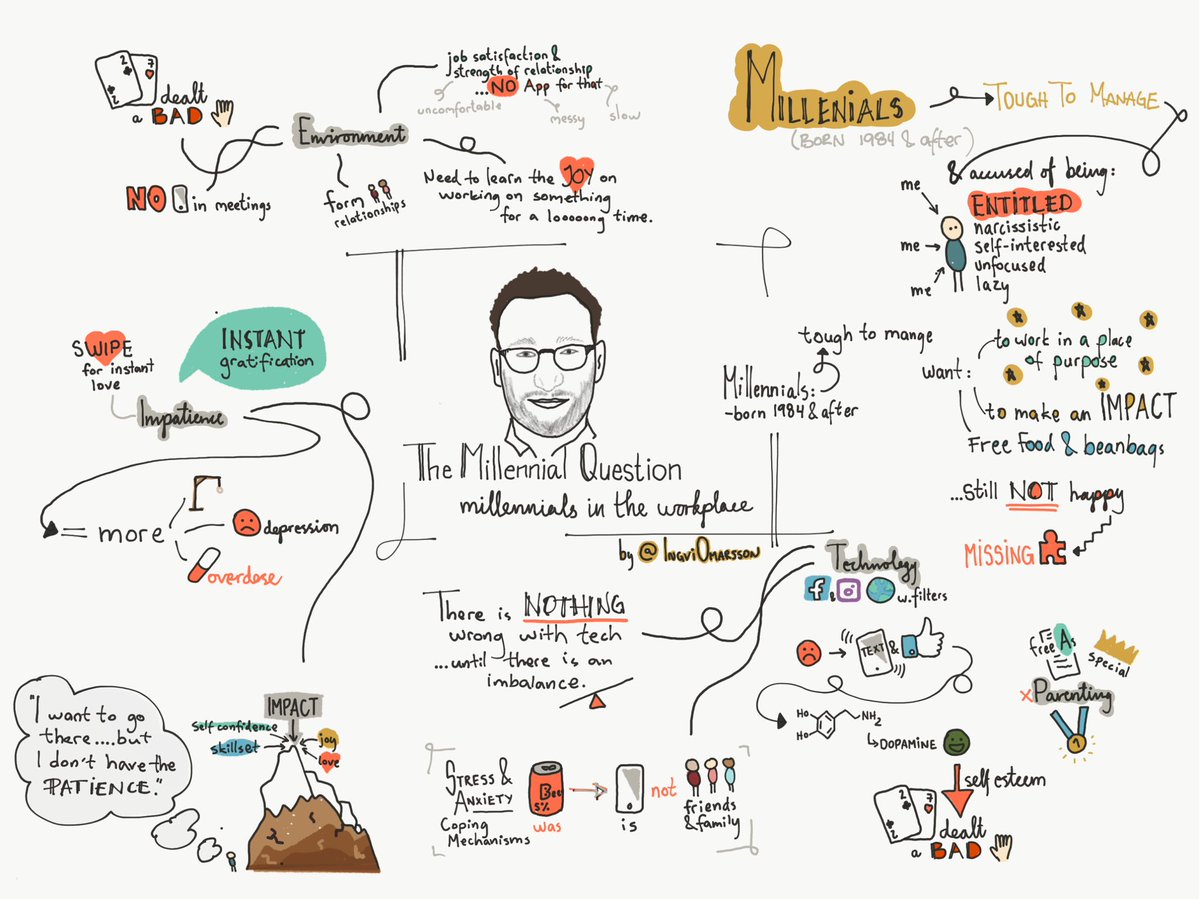“Why is my kid being so difficult?” That’s probably a question you (and every other parent nowadays) constantly ask.
Seriously, though: what makes kids today such lazy, self-entitled, self-centered, spoiled brats? All they want to do is stare at screens all day, whether it’s to play video games, text, or snap a selfie. (Too harsh?)
Okay, maybe it’s because we as parents don’t really know what our kids want. However, every time we ask them, they’ll usually say something like:
• I want to be a part of something that has a sense of purpose.
• I want to make an impact.
• I want free food and bean bag chairs, just like Google.

The ideal life of where a millennial would like to work.
That last point may not be true for all of today’s kids (although it would be great).
Transitioning from that, when you discuss a purpose and try to guide them, many millennials seem to give up quickly and go back to square one: on their phones and/or playing online games.
Welcome to the Life of Parenting a Millennial!
If any of the above information resonated with you, you’re probably still asking yourself, “Why are kids so tough to manage in today’s world?” Based on what’s stated above, you might think that it’s the overuse of technology that’s taking over their lives.
According to public speaker and consultant Simon Sinek, it’s a combination of things… some of which you might not like. He discusses why millennials struggle with success on an episode of Inside Quest. (Skip to 40:11 so you can listen to the important part.)
The 4 Characteristics about Millennials You Need to Know
To summarize what Sinek said, we struggle with finding out what millennials want to do. It seems like they’re always moving on to something else. That said, thee are four important pieces of the puzzle to solving this problem.
1. Parenting
2. Technology
3. Impatience
4. Environment
1. Parenting: Why Our Strategies Didn’t Work

According to Sinek, we have failed as parents… not because we don’t love our kids as much, but possibly because we loved them too much.
Too many millennials were told they could have anything they want and could be anything they wanted to be in life. How they interpreted that was they can be anything they want in life… just because they want it. (It makes sense why parents feel like the younger generation are self-entitled.)
He gives the example about how everyone gets a medal. What happens when a child gets a medal for coming in last? Not only does it devalue the medal for those who actually did better, but it actually makes the person in last feel embarrassed for getting something. It makes them feel worse because they know they didn’t deserve it.
It’s similar to what comedian George Carlin alludes to when he talks about what he called the ‘self-esteem movement,’ where he debunked the claim that, “Every child is special.”
Watch this short clip where he talks about how being ‘special’ loses its meaning when you say it to too many people.
As millennials grow older, they quickly realize that their entire self-image of themselves is shattered. Because their self-esteem is low, they look to other places to feel better about themselves… which leads to point #2.
2. Technology Filters Reality for Millennials

Here is a question for you: what are some of the most notable platforms young people use in 2016/2017? Snapchat and Instagram immediately come to mind, both of which use filters to enhance imagery and make photos and videos better and more entertaining. Plus, we as a society have become hooked on social media networks, because life just looks so amazing in those posts.
What does this do for people with low self-esteem whose self-images have been torn to pieces? They become dependent on their virtual bubble and turn to social media and other online communities (i.e. gaming) where things feel a whole lot better than the real world. In other words, when you consume too much of what’s online, you have a tendency to move away from your current responsibilities and goals.
In essence, people on social media have the power to give adolescents the illusion that life is still great regardless of their current struggles. There are similar patterns with how people use technology and how people use alcohol and cigarettes. Anytime someone likes your social media post, it releases a feel-good chemical called dopamine in your body. A 2012 study from Harvard concluded that talking about oneself through social media activates this pleasure sensation in the brain; it’s usually associated with the good feeling you get from food, money, alcohol, and sex.

This is also why millennials are obsessed with likes, views, comments, and other forms of social media engagement. It’s why people get even more depressed when they lose a follower or friend online. When something happens to you that prevents that good feeling from happening, you start to doubt yourself even more.
2b. Why Online Addiction Is Important
Simon Sinek makes a very valuable insight at the end of his discussion of the social media element. When we’re very young (i.e. toddlers, young kids), the only approval we need is from our parents. As we go through adolescence, we transition into a period where we now need the approval of our peers.
Why is this important for parents to know? As parents, we wonder why young people spend so much time on their phones and less time in the real world. Millennials tend to look at social media and online communities as channels of communication to acculturate outside of our immediate families. Furthermore, it gives millennials the opportunities to reach out to a large number of peers with very little effort. Adolescence is very tough and frustrating to go through on its own, and Sinek believes that – at this day and age – we’re supposed to learn to rely on our friends. It’s a very dangerous situation where you have to rely on your friends, yet your body still heavily relies on social media platforms (not their real-life friends) when they suffer through stress.
3. Why Patience Is NOT a Virtue with Millennials

Adding more to why your kids are self-entitled, the upcoming generation is also an impatient one. Not only do they get what they want (see #1), but they want it immediately.
Why is this? Well, not only have they grown up in a world with the Internet at their fingertips, but they now have access to everything whenever they want it. If they want to buy something, they can go on Dubizzle or Amazon and buy right from wherever they’re sitting. If you want to watch a movie or a TV show, you can get a Netflix account. He even makes the point that you can binge-watch a TV show, which means you can watch as many episodes of the same show right after one another; you no longer have to wait week after week like we used to do. You no longer have to wait for anything anymore!
You can get anything material with the click of a button, or a swipe of a screen. However, what happens when you want something like job satisfaction or a meaningful relationship with another human being? Those things need persistence, things that many millennials have not be trained to do.
Because everything has been made easy for young people, they don’t know what it’s like to go through the things without instant gratification. This is why so many millennials are constantly on the lookout for different opportunities. It could be out of boredom, but it could also simply be that they’re not making an impact. Ironically, it takes a lot of time and effort to do what they want to do.
If your kids don’t learn how to build a sense of character and take a gradual path of finding out who they really are, there’s a good chance they’ll be left confused, or – at the very most – content with what they’re doing.
4. Environment: Our World Isn’t Helping Millennials (Yet)

As much as we believe millennials need to figure things out on their own, we don’t make it easy for them to understand. We are putting our kids in environments that rely on this technology in the same way that they do.
Holistically, institutions aren’t setting up processes to help millennials learn skills that help them focus more on the long term than the short term. Schools, corporations, etc. aren’t exposing them to different things than what they grew up with. As a result, kids won’t be able to develop skills that can help them ‘unlearn’ their reliance on technology (e.g. digital detox), or their self-confidence, or their ability to see past ‘instant gratification’ and look at the bigger picture.
It is important for millennials to learn overcome the challenges of the digital world and help them find their balance between what’s virtual and what’s real. That means we, as adults, need to set the example. If you’re a teacher, think consciously about how to improve the skills that you think millennials are lacking. If you’re an employer, think consciously about the example you set for your employees, along with the policies you intend to implement. If you’re a parent, think consciously about how to instill values that you think your kids won’t get anywhere else… because one day they’re going to be in your shoes.

Source:
Inside Quest


